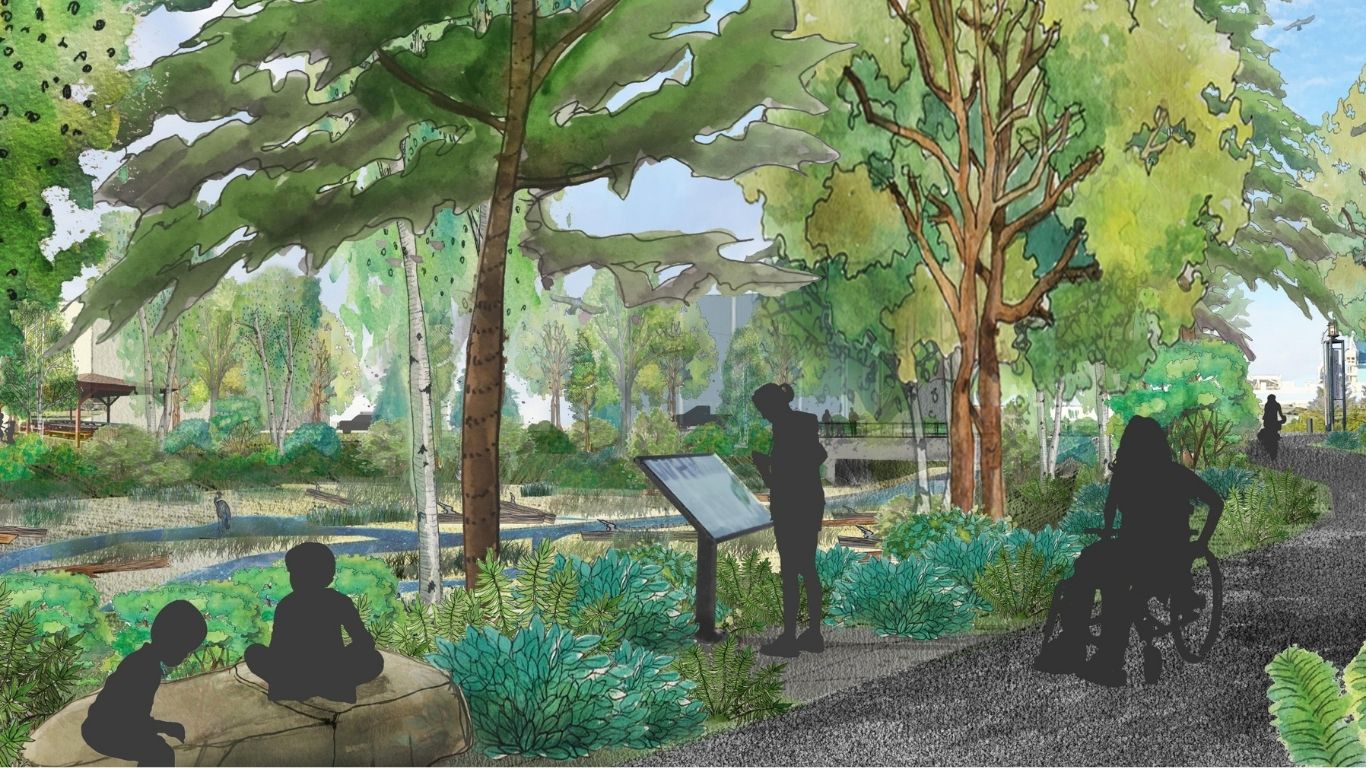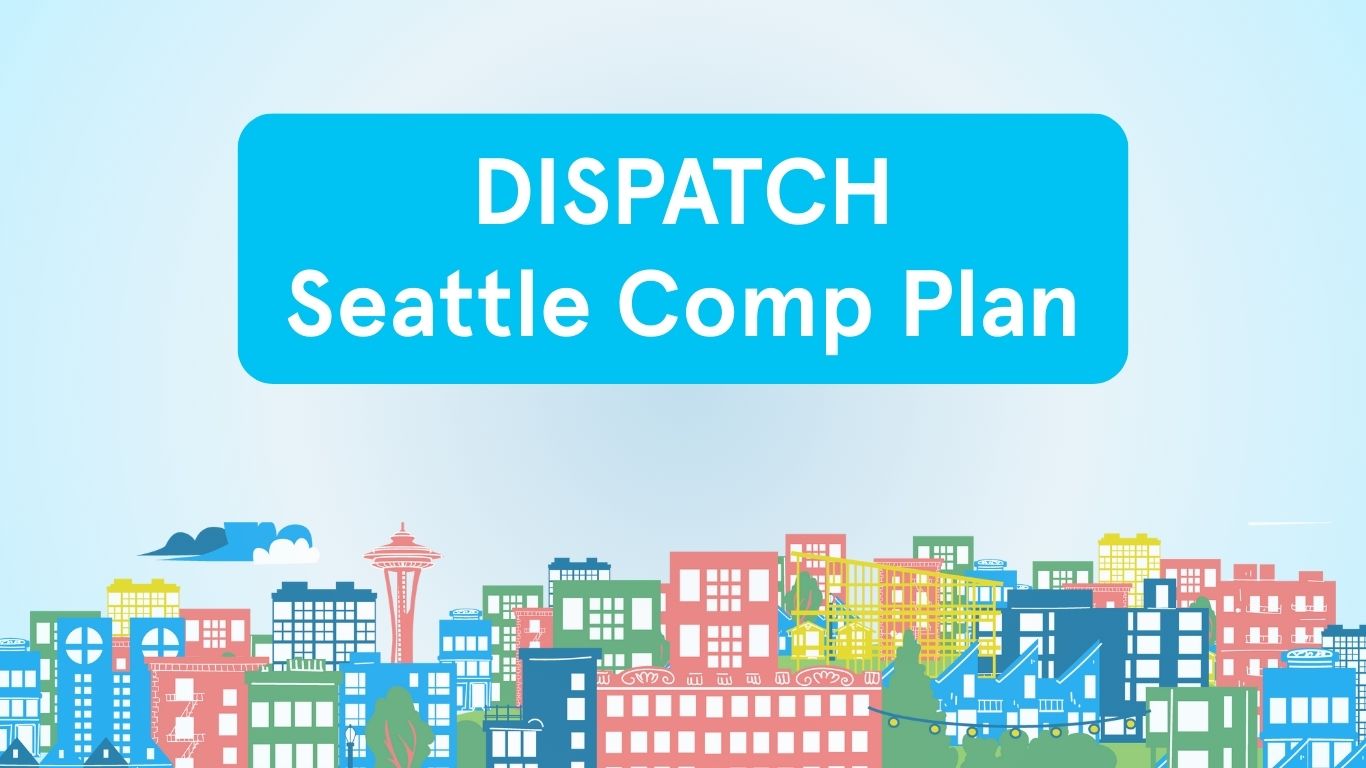At Futurewise, we believe that everyone deserves to live in dignified, safe, and affordable housing, that we must do everything we can to protect our communities and environment from the worst impacts of climate change, and that in doing all of this work we must be centering the voices and experiences of frontline communities. These crises are interconnected and are having real and profound impacts on Washingtonians right now- so this legislative session we sought to pass bold and comprehensive policy that would get at their roots. That’s why we launched our Washington Can’t Wait Campaign this past September to pass updates to our state’s Growth Management Act that would address some of the biggest crises facing our state. Here’s how it went:
The Saga of HB 1099
In 2020, the Washington Legislature failed to pass HB2427, a crucial update to the Growth Management Act (GMA) that would have added a climate change goal and element to the GMA. We knew that we needed to be planning for the impacts of climate change, and with the next round of comprehensive plan updates due in 2024, we picked up in the 2021 legislative session where HB2427 left off.
HB 1099 Sails through the House
Working closely once again with climate champions Representative Davina Duerr and Representative Joe Fitzgibbon, HB1099 was born. This bill would ensure cities and counties take bold action to mitigate climate hazards while working to reduce our contributions to the problem.
To get a bit into the weeds for all our fellow policy wonks, HB1099 would require Washington’s largest and fastest-growing counties and the cities within them to reduce greenhouse gas emission and vehicle miles traveled to help meet state goals for reduction. It would also require all counties and cities planning fully under the GMA to plan for climate change mitigation and resiliency in order to address the adverse impacts of climate change on people, property, and ecological systems. Working closely with Front and Centered, the bill also included a definition of environmental justice and a requirement that city and county comprehensive plans should give special consideration to achieving environmental justice in its goals and policies and should avoid creating or worsening environmental health disparities.
In short- this bill would shift the paradigm for how our counties and cities are planning for climate change.
Despite opposition from the Building Industry Association of Washington (BIAW) and Washington Realtors, HB1099 sailed through both of its House committees and, after a lengthy and at times cringe-worthy debate on the House floor, was voted out of the House with a party-line vote of 56 to 41.
Trouble in the Senate
Having reached an agreement with all major stakeholders on this legislation, including the Association of Washington Cities and Washington State Association of Counties, we were feeling optimistic going into the Senate, although we knew that the path forward was not as clear as it had been in the House. To our delight, we saw HB 1099 move through the Senate Housing and Local Government Committee and the Senate Ways and Means Committee.
This, however, is where things got interesting. Due to a one-time cost of $500K on the transportation budget, HB1099 was referred to the Transportation Committee. It was there that, despite having broad support from constituents, stakeholders, and we believe the votes needed for the bill to pass out of committee, the bill was never brought up for a committee vote and died.
A Budget Proviso Provides a Path Forward
After a failed attempt to incorporate the policy from HB 1099 into an amendment on HB 1241, another GMA related bill that did not make it off the Senate Floor, our last path forward to implement the policy within HB 1099 prior to the 2024 comprehensive plan update deadline was through a budget proviso. Working in collaboration with the sponsors Rep. Duerr and Rep. Fitzgibbon, a proviso was approved in the Final Operating Budget that will fund the Department of Commerce to start the work on setting up the programs needed to implement the GMA climate change element that HB 1099 creates.
And so we forge on, committed to doing the work in the interim that is necessary so that when we pass HB 1099 first thing in the 2022 legislative session, the rules and framework will already be in process to allow King, Snohomish, Pierce, and Kitsap counties and associated cities to implement the bill in their 2024 comprehensive plan updates.
HB 1220 Poised to Change WA’s Housing Landscape
And now, we turn to housing. The housing element of the GMA is perhaps its weakest link, with vague language and few requirements, it is part of the reason that we find ourselves in a crisis where 30% of people in the state are burdened by housing costs and Washington ranks 5th in the US for our rate of homelessness- and this crisis has only been worsened by the ongoing pandemic. Working in coalition with housing advocacy organizations and our legislative champions, we sought out to write legislation that would address the deficiencies in the GMA’s housing element.
Representatives Peterson and Macri Push HB 1220 through the House
The product of this collaborative effort was HB 1220, a bold bill to address a mounting crisis that was sponsored by Representative Peterson and Representative Macri. HB 1220 strengthens the GMA’s housing element by including specific requirements that cities and counties need to be planning for a diversity of housing types available at all income levels. It also requires jurisdictions to expand the zones in which they allow permanent supportive housing and emergency shelters to be built, which has long been a barrier to providing our houseless neighbors with dignified shelter. The bill also tackles the long history of racial discriminatory housing policies, such as redlining, minimum lots sizes,and stringent zoning requirements among others, by requiring jurisdictions to assess and redress the impacts of racially disparate and exclusionary housing policies. Additionally, cities have to identify communities at high risk of displacement and implement anti-displacement policies, programs and regulations to prevent people from being priced out of the neighborhoods that they call home.
In essence, HB 1220 is a bill that would take strides to end income and race-based discrimination in Washington’s housing policy. So when HB1220 passed both the House Local Government and the House Appropriations Committees to arrive on the House Floor, we were ecstatic. With a party-line vote of 57-39 on the floor, HB1220 was on its way to the Senate.
A Senate Landscape Wrought with Uncertainty
Much like with HB 1099, the path through the Senate for HB 1220 was not so certain.
There was strong opposition from some specific cities on sections 3 and 4, which dealt with the zoning of permanent supportive housing and emergency shelters. This incited concern that if HB 1220 got through the Senate, it would be weakened and unable to truly meet the scale of the housing crises. However, it passed its Senate committees with these sections still intact thanks to the hard work of Senator Kuderer, who made sure the bill remained strong.
As we drew closer to the deadline to get a Senate floor vote on the bill, it was increasingly unclear whether we had the votes for HB1220 to pass. So, we took a gamble and HB 1220 was brought up for a vote late at night before the floor cut-off. There was confusion on amendments and without clarity on a final vote, in the end, it just barely squeaked by with a final vote count of 25-24.
We are still celebrating this huge win for housing justice as we anxiously await Governor Inslee’s signature on this landmark bill, which should come any day.
The Vesting Loophole Remains Open…For Now
For the last 12 years, Futurewise has worked to close a crucial loophole in the GMA known as the ‘vesting loophole’. You read that right – this bill was first introduced in 2008.
What exactly is the vesting loophole, you ask? Under the GMA, counties can vote to expand their urban growth areas into farmland and natural habitat. Sometimes though, these UGA expansions are unnecessary and just contribute to excessive sprawl. In those cases, Futurewise appeals the UGA expansion to the Growth Management Hearings Board (GMHB) and win a judgment that the UGA expansion was illegal under the GMA. However, under the current framework, any permits issued for new construction in the expanded UGA are still valid even if the UGA expansion is later ruled illegal. That is why we have been working since 2008 to close this harmful loophole and ensure that we’re not losing any more farmland or critical habitats to sprawling sub-developments.
This legislative session, we were back at it with SB 5042, a bill that would have closed the loophole by changing the date for specific actions, such as UGA expansion or de-designating farmland, until after the appeal period has expired or a judgment by the GMHB has been passed. Thanks to the support of so many incredible advocates across the state, SB 5042 made it further than ever before. However, it did not have the votes it needed to make it off of the Senate Floor. But, don’t despair! We will be at it again next year and are already working to build the support we need to make sure that 2022 is the year that the vesting loophole closes, once and for all.
A Team Effort
With constraints of a virtual session, budget pressures, the ever-present COVID crises, and many more things that made this legislative session truly unprecedented, we are so incredibly proud of how far the Washington Can’t Wait Campaign came. To have one major GMA bill pass and another make it so far is an incredible accomplishment in any year, let alone this year, and it would not have been possible without the tireless advocacy of our supporters, partners, and champions in the legislature. As we look forward at the months to come and make plans to ensure that HB 1099 is implemented next year, we are filled with gratitude for everyone who contributed to this campaign, and look forward to continuing to work with you to make Washington a more just, resilient and equitable place to call home.


